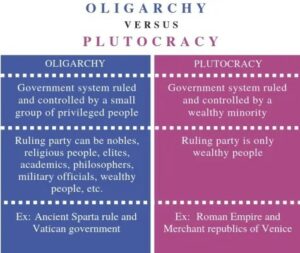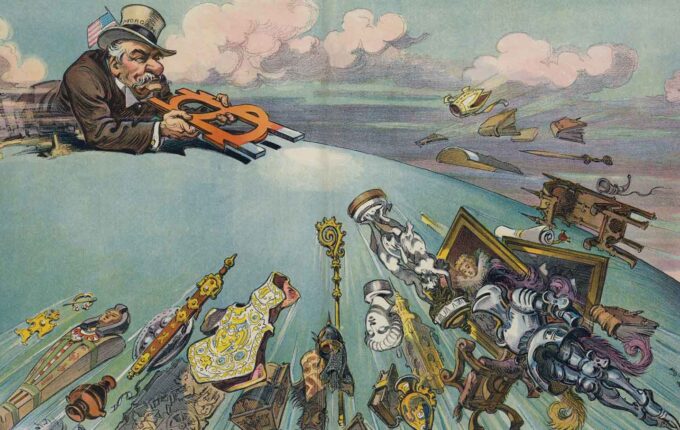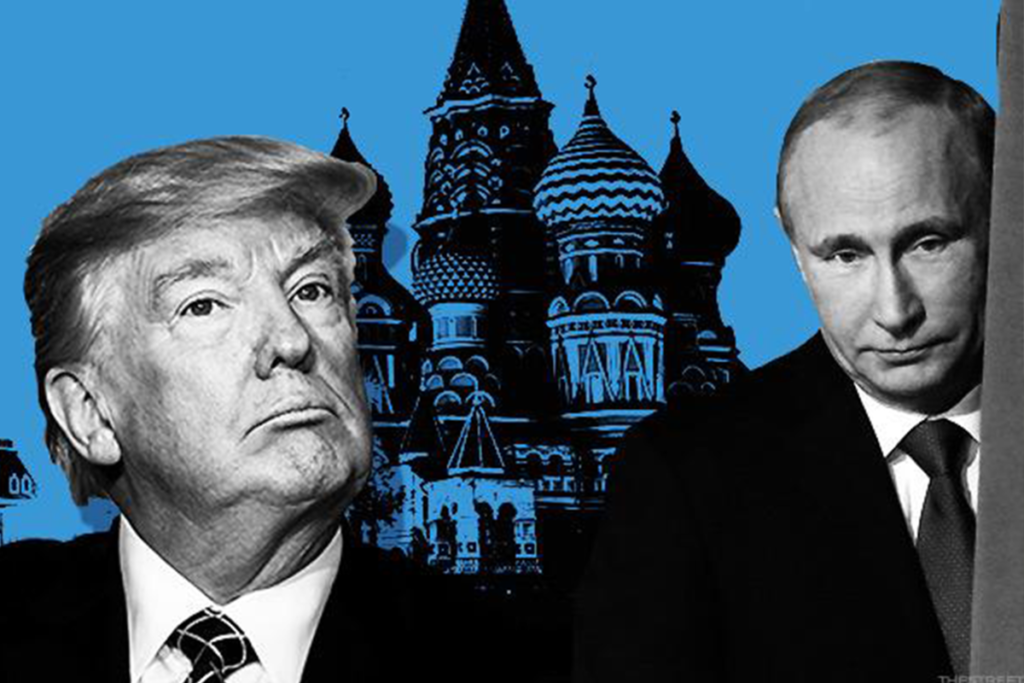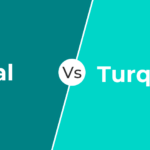Oligarchy refers to minority control by such an elite group, while plutocracy refers to minority control through the rich. Thus, plutocracy is an oligarchy, but its governing minority is distinguished by its extreme riches. Two different types of elite leadership structures are described by the terms oligarchy and plutocracy.
That is to say, they stand for different kinds of administrations. Absolute authority, therefore, rests with this select few, which may include business magnates, political heavy hitters, top commanders, religious leaders, intellectual heavy hitters, or affluent proprietors. In addition, their authority is usually handed down down the generations by succession; nevertheless, this is not necessarily the case.
A plutocracy is a kind of governance in which decisions are made by a small group of very wealthy individuals. Accordingly, the fundamental qualification for membership throughout this minority governing elite under this form of governance is financial success. The ancient Greek phrase Ploutokratia, signifying “government of riches,” is whence we get our language “plutocracy.”
Therefore, plutocracy refers to a kind of leadership exercised by the rich. To put it another way, this elite group exercises control because of the tremendous riches it has. This is the best plutocrat definition according to the oxford dictionary.
Key Differences Simplified
Plutocracy: They were created to primarily advantage the privileged and rich.
Oligarchy: They can impact or even make national policy choices.
Meaning
| Plutocracy | Oligarchy |
| The Greek noun plutocracy, plutocratic, combines the concepts of riches (plutos) with authority (basis) to give us the English name. | The Greek word oligarch, through whence we get the word oligarchy, combines the concepts of fewness (logos) and conquest (ark). |
| Originated in Greek in the mid-17th century | Originated in Greek at ending the 17th century |
| A society controlled by wealthy people | A group of people controlling a state |
Usage Examples
- Example no1 Oligarchy is best shown by historic Spartans as well as the Vatican, whereas plutocracy is best illustrated by the Romans Emperor and the merchant kingdoms of Venetian.
- Example no2 Oligarchies and plutocracies are either ruled by a small, self-serving elite. As a result, these phrases are commonly employed adversely to convey apprehension that a minority in power would put its own needs above those of the nation.
Other Similar Terms
Are oligarchy and plutocracy the same?

Oligarchies have a chequered past, marked by their need for popular submission or even persecution to maintain their power. The word plutocracy first coined by Socrates is now more generally used to describe the system of government in which the wealthy have all the power or are ruled by the rich.
The greatest narrowly defined type of governance is a plutocracy, which derives its legitimacy only from the accumulation of money. Because the nobility’s money plays a role in maintaining their authority, certain oligarchies may be plutocratic. An oligarchy based on riches might be called a plutocracy, whereas one based on ethnicity or class might be called an aristocrat.
What is the difference between kleptocracy, plutocracy, and oligarchy?

Unlike plutocracy, the government of the wealthy, and oligarchy, corrupt governments have their characteristics. Officials in a kleptocracy illegally benefit themself by means such as bribery, embezzlement, and the diversion of public monies for personal gain.
It’s not necessarily the case that the very affluent are the ones running things in a plutocracy, this may also affect oligarchy characteristics. They could usually considerably affect judgment via both legitimate and shady channels, such as campaigning, funding political campaigns, and bribery.
The opposite is true under an oligarchy when the elite group plays “below the curtain” tactics while publicly promoting a surrogate ruler.
Which country is a plutocracy?

European democracies were called “plutocracies” in the ideological lexicon and advertising of Fascism Italia, Nazi Nazism, and the Communist Party, with the suggestion that a tiny group of extraordinarily rich persons controlled and held the nations hostage. Fewer people having more control over a nation’s resources is never a good thing.
A dishonest and autocratic regime that inhibits the idea of social prosperity. The countries wealthiest would rather see everyone stay where they are than see anybody else succeed. Therefore, the healthy rivalry is often stifled. Oligarchy’s definition of world history is considered friendly.
Is plutocracy a form of oligarchy?

As per the plutocratic definition, oligarchies have a chequered past, marked by their need for popular submission or even persecution to maintain their power. Aristotle was the first to use the phrase to describe a system of government in which the wealthy had absolute power. The plutocratic program’s inherent processes are frequently too skewed to fix itself.
Nevertheless, the network may accelerate development, particularly in its infancy. Everything moves more quickly when cash is at stake. As long as there is sufficient funding, construction initiatives may go forward quickly. If used well, it has the potential to provide sustenance for the underfed or at minimum provide opportunities for their survival.
What is a government run by elites called?

Oligarchy. The term “oligarchy,” from the Greek for “government of the minority,” describes a system of government wherein authority is concentrated in the hands of a tiny group. These individuals may stand out due to their status in society, whether it be due to their noble bloodline, riches, familial relationships, schooling, or commercial, religious, or armed authority.
You can know about the plutocratic definition that states are controlled by citizens.
Which country is an oligarchy?

The word “oligarchy” is often used to describe modern-day China and Iran. Beijing calls itself a “individuals ‘ democracy” of communist ideology, yet for centuries, a small group of individuals has controlled the nation.
Who elects oligarchy?
An inherited socioeconomic structure that is differentiated beyond the remainder of civilization by religion, family, monetary position, reputation, or even dialect, and from which only members of the dominating aristocracy are selected to serve in positions of power. Such leaders often use their authority to further their respective class’s objectives.
What are the people in an oligarchy called?

The “oligarchs” who rule an oligarchy are a small group of influential individuals who share some common traits, including money, lineage, aristocracy, business concerns, theology, economics, or armed might. Oligarchs can dominate any kind of administration, even democratic democrats.
What qualifies as an oligarchy?
In most cases, those in command in an oligarchy are part of a small number of powerful individuals. Councilmember members may be chosen by popular vote, bestowed upon their families at a birth, or required to meet particular material or property standards before being admitted to office.
- Thus Far vs So Far [Which is Correct?] - September 3, 2023
- Uled vs Oled in 2024 [Which is Better?] - September 3, 2023
- Scarlet vs Red [Difference Explained] - September 3, 2023

![Thus Far vs So Far [Which is Correct?] Thus Far vs So Far 1](https://bitdifference.com/wp-content/uploads/2023/07/thus_far-150x150.png)
![Difference Between a Castle & Palace? [Examples] Palace vs Castle](https://bitdifference.com/wp-content/uploads/2022/11/maxresdefault-2-4-150x150.jpg)
![INFP vs INFJ in 2024 [Simply Explained] Infp vs Infj](https://bitdifference.com/wp-content/uploads/2022/11/1200-607309-10419995.jpg)
![Converse vs Conversate [Difference Explained] Converse vs Conversate](https://bitdifference.com/wp-content/uploads/2022/11/Converse-v-Conversate-150x150.webp)
![Libertarian vs Liberal [Difference Explained] Libertarian vs Liberal](https://bitdifference.com/wp-content/uploads/2022/11/Screen-Shot-2020-12-31-at-1.12.56-PM-1024x682-1.png)
![Stone vs Rock [Difference Explained] Stone vs Rock](https://bitdifference.com/wp-content/uploads/2022/11/large_.jpeg)

